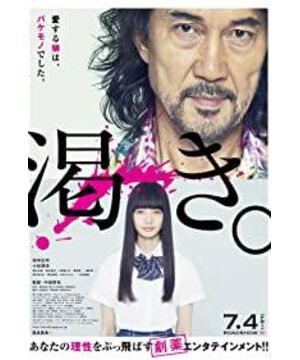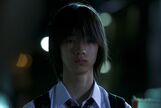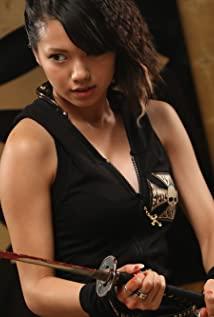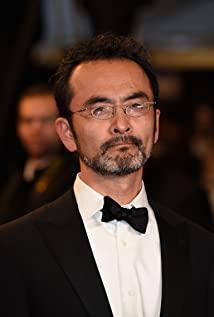Although this is in the form of a film review, it is just some personal thoughts on the film.
At first, the reason why I watched this movie was to watch Komatsu Nana, but I insisted on watching it because I was attracted by the director's crazy and cool editing techniques and the foggy plot to find Kanako, and I also wondered why the director cut the show. Broken like this, I feel dumbfounded. I went to search for the director of this film: Tetsuya Nakajima, and then I learned that it was the director who made the confession, and I was not surprised why this editing method was adopted.
Now let’s start my personal thoughts: the movie brings a strong sense of visual impact from the very beginning. The violent and dark style of painting continues the director’s consistent style, and the interest in watching the movie is instantly aroused. With the continuous progress of the plot, the turning plot and It is expected that the thrill of the impact will be different again and again, but it will become more and more appetizing. On the basis of the success of the original confession, although the director has adopted his own technique, but after watching these two dramas, I came here. Look, the desire is not to go to the next level, but to have a tendency to go crazy. A simple summary of the whole film is that the father searches for the missing daughter and untangles the real veil of the daughter. Through the director's cool editing, the character lines are constantly changing, and the delicate arrangement and even the bloody scenes bring mystery to the whole play. , the whole drama is boring and empty.
After watching it, it was difficult to find a character with a distinct personality in the whole play, and I didn't feel the character of the characters in the play, let alone resonate with them. In an interview with Komatsu Nana, she said that she could feel Fujishima's father's love for her. The fatherly love of my daughter Kanako, and for me, the feeling of Fujishima's father is not a father full of fatherly love but a villain. At the beginning, he gave me the feeling: he was a poor man who suffered from his wife's cheating and lost his job and depended on drinking and taking medicine to support himself every day, but he still longed for a good family, and he was also a good father who helped his ex-wife find his daughter regardless of his previous suspicions. But then I found out that I was wrong, he was a man who was still haunted by his former wife cheating on him, a father who was vacant in his daughter's life, relying on his police experience and arrogance to understand Kanako's growth problems and then The husband, who looked for his daughter as a bargaining chip for rebuilding his family and having sex with his ex-wife, raped her man with the inherent advantages of his man after the woman refused. In the play, most of the rest of this man except drinking and fantasizing is beating and beating. Rape women, the teacher, the mother of the gangster, the wife of the killer, and even the man who is his ex-wife is the same violent catharsis.
In this film, I personally think that Director Nakajima wants to express the influence of family and society on children. Kanako has one thing in common with other teenagers in the play and even the characters in "Confession". It is not so much that they are problem teenagers. Rather, they are incomplete teenagers. The incompleteness of the family and the incompleteness of the society create their incomplete personalities. Kanako is like Alice in Wonderland, but what Alice reaps is love and beauty, and what Kanako has is only boundless depravity.
In the eyes of the parents, the starting point of the tragic story is Kanako's disappearance, and for Kanako, the story begins long ago. Her mother remarried, her father never took care of herself, and an incomplete family did not give her a sense of love and security. And what is the society in which he lives? Mixed with gangsters, Matsunaga enjoys the right to bully others, Ogata who is bullied, and her peers around her are also doing everything she should not do at this age. The only boy in this world who has given her warmth, but also by this The world is ruined, and it is not only Ogata who bid farewell with a kiss at the funeral, but also the past self. The lamb who was once slaughtered has become a hunter on the spider web, and weaving his own web to capture the prey.
In "Confession", the director presented such a world. The school is no longer a paradise for education, and the group of people in the school, I am no longer a lovely student, are full of laughter and youth, symbolizing the innocence of the school uniform but hiding the difficulty utterly ugly. The people outside this place didn't understand it, but Kanako was destroyed without missing them. The father, by his own arrogant judgment, determined that his daughter was a poor child who was led astray by the bad boy, but he did not know that the real bad boy was his own daughter. He thinks that it is a bad guy in society who destroys his daughter, a disgusting old man who likes to play underage, so he is angry, he beats the mother of the gangster, beats the teacher and doctor who has had an affair with his daughter, kills the killer, rapes the killer's wife, in When I saw the unbearable photos of my daughter, I cried out to my heart, but I never thought that I was the one who pushed Kanako to take the first step. After seeing the photo, he couldn't bear his pain and kicked the car. What about Kanako? She is the protagonist in the photo, she is there, and he is happy with that disgusting old man? How did she feel when she was smiling in the photo?
The most impressive scene in the movie is the moment when Kanako calls her father, along with Kanako's laughter, the most profound irony, I think Kanako's heart is in pain, she is screaming. "Yeah, you are my dad, are you satisfied with seeing Kanako now? I am your masterpiece, dad...
The story did not end with Kanako's corpse buried in the snow-covered headland, and the story was still in full swing.
We are all Kanako.
View more about The World of Kanako reviews











